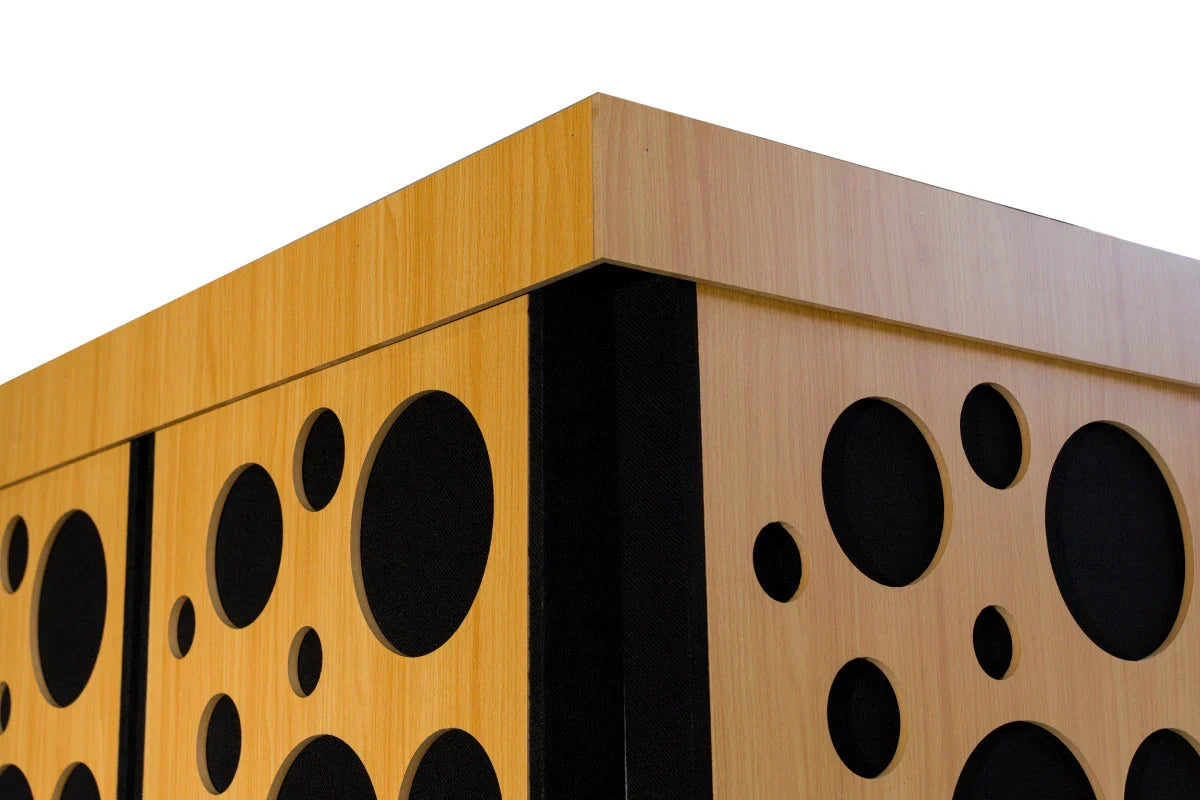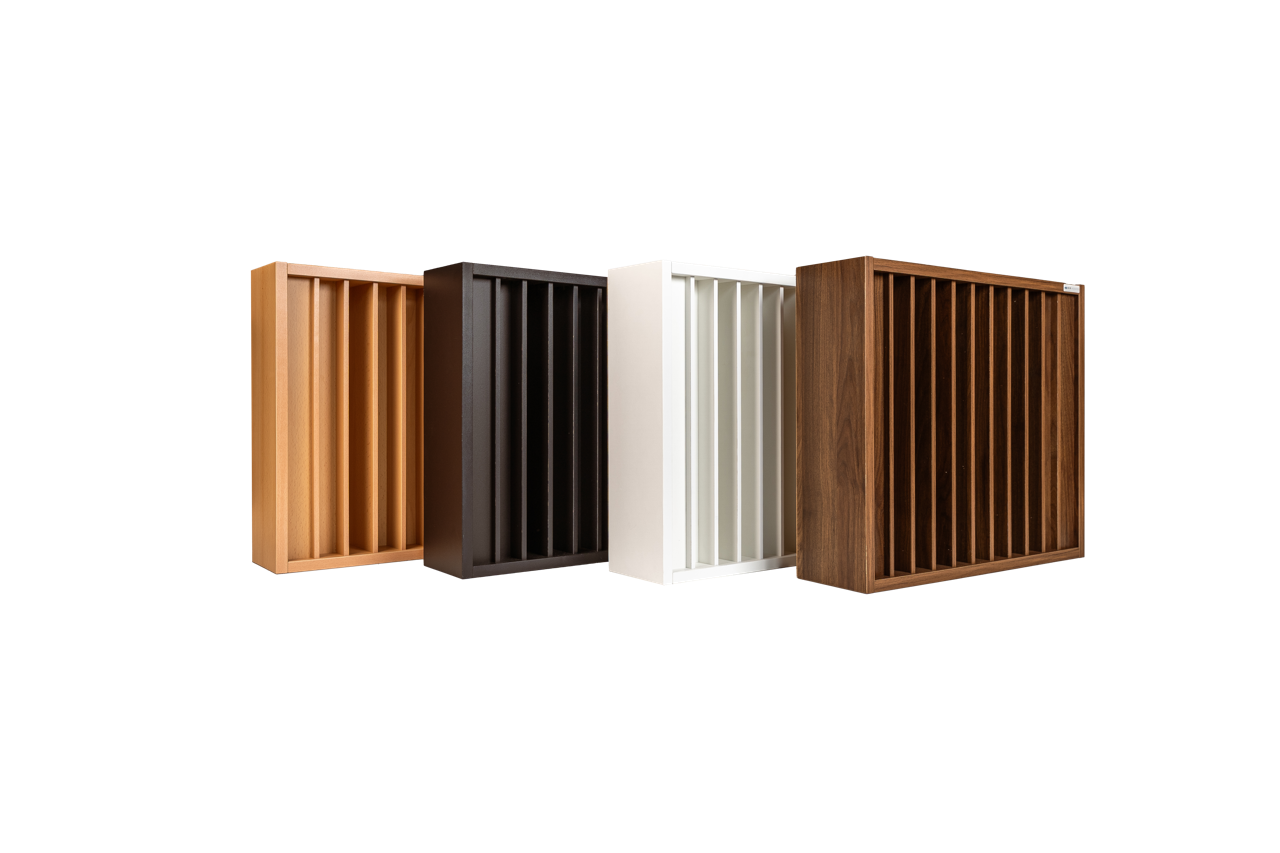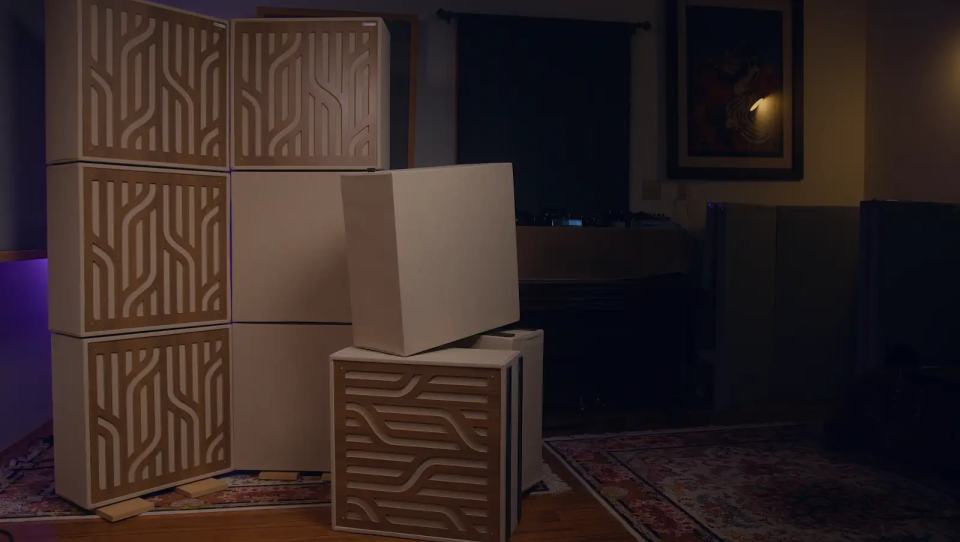 MASSIVE Mastering bridges the wide gap between mastering suites that can cost hundreds of dollars per hour and project & demo recording studio mastering setups. The vision of former JEM Music Complex chief engineer John Scrip, MASSIVE Mastering provides artists an affordable, yet professional quality dedicated digital audio mastering alternative. A clientele from across the USA and several countries around the world trust their CD premastering to MASSIVE Mastering.
MASSIVE Mastering bridges the wide gap between mastering suites that can cost hundreds of dollars per hour and project & demo recording studio mastering setups. The vision of former JEM Music Complex chief engineer John Scrip, MASSIVE Mastering provides artists an affordable, yet professional quality dedicated digital audio mastering alternative. A clientele from across the USA and several countries around the world trust their CD premastering to MASSIVE Mastering.
In 2009, GIK Acoustics sat down with John and asked him a few questions.
GIK: So John what projects have you been working on lately?
John: It’s coming up on dance show season, so a big increase in editing and compilation. Other than that, name it – Rock, pop, classical, country, gospel – I’ve been working on spoken word projects from
Lots of international work with the dollar flipped around also, which is great. This – let’s call it a “classic metal” project from New Zealand stands out for some reason – Sonic Altar – If you get a chance and you’re into straight-up, fast-driving, Harley riding rock, you’ll be hearing from them soon I’m sure. Young “kids” for lack of a better term – but very polished.
I’m seeing a trend here – Maybe the talent isn’t really getting younger but I’m just getting older… Lots of stuff from the smaller indie labels too – The larger labels seem to be stepping very carefully with the economy and the indies are going to take over if they don’t watch out. But hey, that’s fine. Some of the cooler stuff I’ve worked on recently was on those aggressive indie labels that really believe in what they’re putting out – Stuff that a lot of the majors wouldn’t want to take a chance on.
GIK: So it’s not just putting CD’s together?
John: That’s most of it, sure – But editing and compiling
Typical mastering makes up the bulk, but those “related” projects break up the monotony nicely.
GIK: What equipment do you find is “most important” for today’s mastering engineer.
John: Same as it’s always been – Monitoring and acoustic control. I know a lot of people are fond of the old “There are no rules in audio” adage, but either they have no idea or they have wonderful monitoring in a great space. There are *two* rules I can think of right off the top of my head — One is that you will only ever hear as well as your monitoring chain allows you to. The other is that your monitoring chain will only ever be as accurate and consistent as your room allows them to be. Put the guy with the greatest hearing in the world in front of cheesy speakers and he’s not going to be able to do much… Put him in a bad room and he’s going to be taking a best guess. An educated guess – but a guess nonetheless. That sounds like Dr. Seuss…
 But the stuff with the knobs on it – “today’s mastering engineer” has to be really picky. The demands are so high and the budgets aren’t what they used to be – but the gear hasn’t come down in price. So you have to make sure the gear you choose is going to work well with almost anything. I have several pieces that I use for “this” sound or “that” sound – When you need a
But the stuff with the knobs on it – “today’s mastering engineer” has to be really picky. The demands are so high and the budgets aren’t what they used to be – but the gear hasn’t come down in price. So you have to make sure the gear you choose is going to work well with almost anything. I have several pieces that I use for “this” sound or “that” sound – When you need a
In any case, Crane Song, Manley, API, BelCanto, the hot-rodded SSL 4000 clone – It’s all ridiculously clean, very quiet stuff with gobs of headroom. And with the demand for volume at this point in time – as much as I wish it weren’t the case – without a lot of headroom, you might as well just throw it away.
GIK: What is the biggest problem you come across these days with mixes being submitted to you?
John: Too much. Too much going on, too many effects, too hot on the way in – Too much volume. A lot of “less seasoned” engineers are convinced that if they don’t make everything as loud as possible right off the bat, then the finished product isn’t going to be loud. Loudness aside, it’s the perfect way to make sure that it won’t have the potential to *be* loud when it’s done. So they track too hot and overdrive the input chain right off the bat and it just goes downhill from there. If people would pretend that -12
That and the trend to “fix it” at the mastering stage. Some will send in mixes that they’re not happy with hoping that I can “fix” them here and it just doesn’t work that way. Ask any mastering engineer – We’d much rather “enhance” a great recording than try to make a bad recording “less bad” – If it’s even possible in some cases.
The funny part of that whole situation is the experience of the engineers in some cases – I’ll get in these great sounding projects that are obviously “safe” but very decent sounding from hobbyists that have been at it for less than a year. I’ll get great sounding projects in from engineers who have been full-time industry pros for a decade or more. But the most problematic projects tend to come in the middle – It’s like the “rookies” haven’t learned enough to screw anything up, the pros have learned how to get out of the way. But a lot guys in the middle are the ones with enough rope to hang themselves with. You know how you learn something new and then you have to do it all the time? Or you get that new piece of gear that’s suddenly never turned off? Turn it off once in a while. Get back to the basics – Get the core sounds sounding as amazing as you can, then just get out of their way. Track at “normal” levels – not “as hot as you can without clipping.” Go ahead and record 5 vocal tracks but you don’t have to use them all if the mix doesn’t need it. Use reverb, but once you actually notice it, you’re probably using too much. You can always add more later if you actually need it.
GIK: So tell us a little about your room? How are you set up and what kind of acoustics do you have?
 John: I was limited by the existing space quite a bit so took parts of two different rooms and made this one. It’s relatively small, so I knew it was going to need a lot of broadband trapping right off the bat. I think I started out with 18 traps from you guys then added some custom units and fortified the corners
John: I was limited by the existing space quite a bit so took parts of two different rooms and made this one. It’s relatively small, so I knew it was going to need a lot of broadband trapping right off the bat. I think I started out with 18 traps from you guys then added some custom units and fortified the corners
The last time I had the room shot, we noticed a little comb-filtering from the desk to the ceiling above, so I decided to add a couple
John Scrip
MASSIVE Mastering
P.O. Box 68143
Schaumburg, IL 60168
Phone (direct studio line): 1.630.237.4393
https://www.massivemastering.com/



Share:
Interview with Bob Ebeling